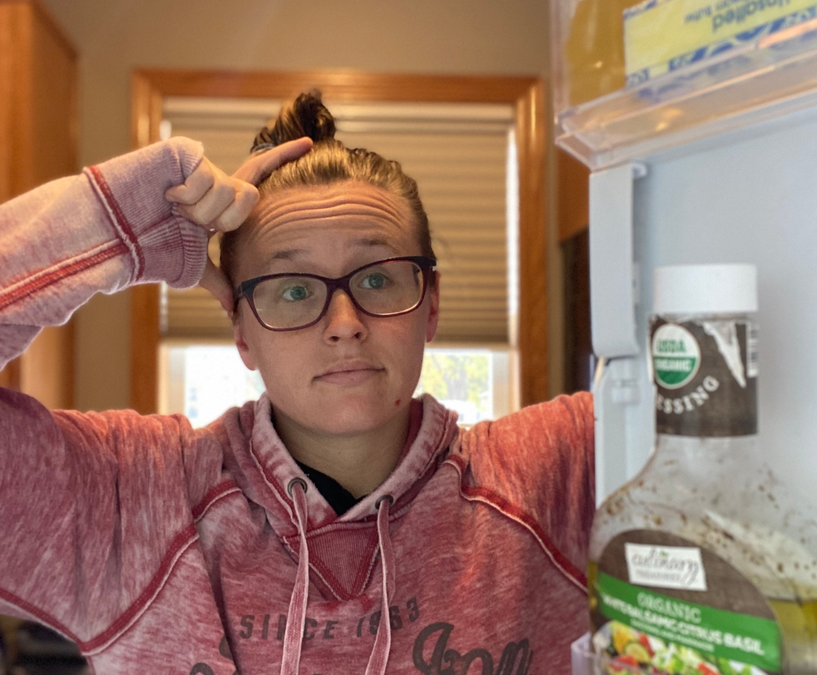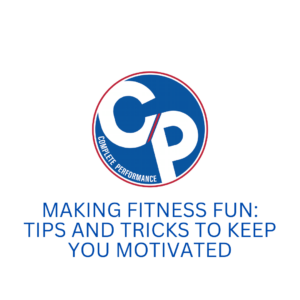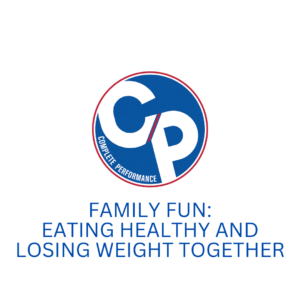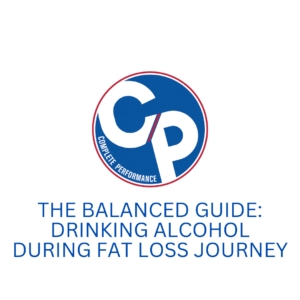“You’re in a caloric deficit, you’re SUPPOSED to be hungry!”
I will NEVER forget the day my coach pointed that out to me.
I have helped HUNDREDS of others navigate their fat loss journey.
Together we worked through habit change,
Portion control,
Food quality,
Stress eating,
Eating out,
AND HUNGER!
Yet when it came time for my own journey, I could not, for the life of me understand why I was hungry ALL THE TIME.
When my coach told me that I’m SUPPOSED to be hungry it was like a light went off!
DUH!
You see, so often we view hunger as a bad thing when in reality, it’s a crucial biological signal.
But it’s not a signal that you should be feeling around the clock.
Even while in a deficit…
So why do some of us feel hungry ALL THE TIME?
Why do we go through times where we feel like no matter what we eat or do that our appetite is NEVER satisfied?
Well, in my experience (personal and professional), it’s one or more of these 9 reasons.
#1 You’re Not Eating Enough, PERIOD.
Fat loss is TOUGH.
You know that.
But what REALLY makes it suck is that in order to lose body fat, you need to be in a calorie deficit. That means you’re eating LESS than what your body WANTS and believes it needs.
Bear with me, we’re not even at the toughest part yet…
The toughest part is that there’s a VERY fine line with that deficit.
Too little of a deficit, you won’t see the results you desire. Too big, you’re going to be STARVING and hurting your results!
One of the biggest reasons you feel constantly hungry is because you may have crossed too far over that line and are not eating enough to sustain your biological needs.
This does come in the form of true hunger, which means you’ll feel things like a growling or rumbling stomach, fatigue, inability to concentrate, dizziness, or constant thoughts about food.
#2 You’re Not Eating Enough Protein.
Now, you might be eating enough calories, but the under-eating of protein can STILL cause you to feel hungry all the time.
Everyone knows protein is great for building muscle, but what many of us forget is that protein is the most satiating nutrient.
So, what’s enough?
Well, more and more research continues to be published showing that the ideal range for protein intake is 0.7 to 1.2 grams per pound of bodyweight.
Once you determine your daily protein goal, divide that by your ideal number of meals for a day. That will ensure you get a consistent intake of protein throughout the day, which will reduce any swings of hunger.
What happens if you’re not even CLOSE to the lowest end range?
Start with 100 grams of protein per day and add 10 grams of protein per week to your daily intake until you’re within your ideal range.
#3 You’re Distracted When You’re Eating
What do you do when you eat?
Read emails?
Watch TV?
Scroll social media?
Talk on the phone?
These days, the possibilities are endless.
But all of these are distractions from what we’re really trying to do – EAT!
When you’re distracted while eating, you’re likely to rush your meals, which means the body isn’t able to digest food to the best of its ability.
On top of that, your body has a harder time recognizing fullness which leads to either over- or under-eating.
In a study comparing distracted to non-distracted eaters, it was found that non-distracted eaters reported a decreased desire to finish their entire plate. The distracted participants maintained a desire to eat everything on their plate.
How does this play into hunger?
Well, mindful eating practices can definitely help you feel satiated, but it’s also linked to reduced food cravings and emotional eating.
#4 You’re Eating Too Fast
Maybe you are among the non-distracted eaters, but you STILL find yourself hungry – what gives?
Well, even if you turn off the TV and put down the phone, you still might be rushing through meals and preventing a full digestion of your meals. Just as when you’re distracted, eating too quickly can prevent your body from recognizing fullness and satiety.
How can you slow down?
Try dedicating a certain amount of time to finish your meals.
Take a sip of water between every bite.
Chew a certain amount of times.
Try processing every bite with all 5 senses.
Work to breakdown every ingredient of your food.
Do a mid-meal check in and ask yourself these questions:
- What does the food taste like?
- Do you enjoy the texture?
- What’s the temperature?
- How does it satisfy you?
Use these strategies and while your mealtimes might take longer, you’ll have a lasting fullness before you know it!
#5 You’re Dehydrated
You’re hungry, so that must mean you need more food, right?
Not necessarily…
Hydration status also plays a HUGE role in hunger levels.
A study from the Journal of Physiology and Behavior found that 62% of the time people responded incorrectly to body signals and confused hunger and thirst.
Now, there is a balance because if we ALWAYS try to curb hunger with water, we’ll never get adequate calories or nutrients.
If you have a tendency to feel hungry shortly after eating (anything within an hour), try drinking a glass of water before eating more food.
If you’re looking for a recommendation on a daily amount for hydration, aim for 100 ounces of water.
#6 You’re Not Sleeping Enough
Sleep and hunger go hand-in-hand believe it or not.
How?
Sleep plays a significant role in regulating hormones, which is a HUGE contributor to hunger!
If you’re short on sleep, you’re going to face elevated levels of ghrelin (the appetite stimulating hormone) and decreased levels of leptin (the satiety hormone). In short, that means a lack of sleep causes you to feel hungrier and specifically crave sugary foods.
So, your sleep NEEDS to be a priority!
Focus on getting a TOTAL of 49 hours of sleep PER WEEK. That rounds out to be 7 hours of sleep per night, but sleep does work in somewhat of a bank system so you can catch up and make up for nights that are short.
On top of the AMOUNT, be sure you’re practicing good sleep hygiene.
Sleep in a dark room.
Keep the room cool.
Avoid heavy dinners and alcohol before bed.
Turn off the phone and TV 45 minutes prior to bedtime.
#7 You’re Stressed Out
Stress is a wonderful thing… NOT.
If you’re stressed all of the time, your sympathetic nervous system (AKA your Fight or Flight) is running WILD!
When the sympathetic nervous system runs wild, your parasympathetic nervous system never gets a chance to do its job, which is to promote rest and DIGEST in your body!
Besides inhibiting the parasympathetic nervous system, the sympathetic nervous system is responsible for the secretion of cortisol, and THAT is a hormone that messes with your hunger hormones.
Now, reducing your stress isn’t something you can do overnight, so I want to leave you some tips for managing stress eating:
- Set meal times and stay committed to those times!
- Use the 10-Minute Rule, meaning when you feel like you’re going to give in to something because you’re hungry, wait 10 minutes and do some other activity.
- Be sure you’re eating enough calories overall.
- Eat enough carbs.
#8 You’re Bored
Boredom hunger is a very real thing.
It comes from our constant stimulation.
It comes from living life on the go.
It comes from our tendency to think about what’s next.
And when we finally stop and slow down, we don’t know what to do with ourselves!
We need SOMETHING – ANYTHING! to occupy our empty minds.
Now, I’d love to tell you to slow down, but that’s not quite realistic…
What I will give you is some advice to reduce the feelings of boredom.
What you need to do is find something to occupy your time:
- Pick up a new hobby.
- Read a book.
- Listen to or play music.
- Study a new subject or language.
- Meditate.
The list is ENDLESS!
Find something that occupies your mind and keeps you away from the munchies!
#9 You’re Not Clear On Your End Goal
This one is VERY important and quite simple.
If you aren’t incredibly clear on your end goal, you’re going to have a tough time staying focused any time you feel some type of hunger pang.
If you’re not super clear on your goal, you’re not going to help the other 8 factors that might spark hunger.
If you’re not set and clear on your goal, you’re not going to get there!
So if you’re NOT clear on your end goal, take a peek at The Ultimate Goal Setting Guide to hone in on your goals!
About The Author

Jordan Davies is the Co-Owner of Complete Performance. Jordan has her B.S. in Exercise Science and Psychology, and her M.A. in Holistic Health Studies. She is a CSCS certified strength and conditioning coach, and a PN-1 and NCI-1 certified nutrition coach. She loves to study how the human body needs to be moved and nourished and making that fit to your unique lifestyle. Click Here Now to Apply for Coaching with Jordan.




